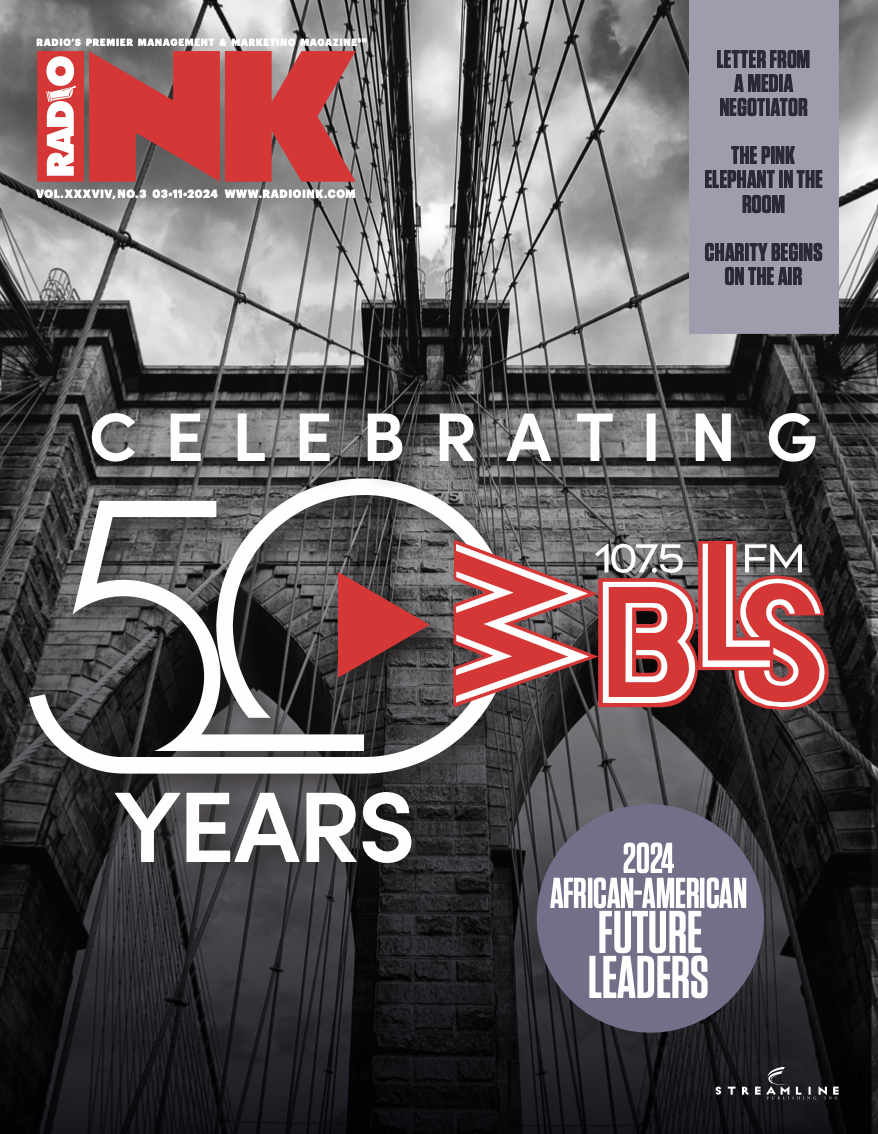
(By Larry Rosin) When I listen to most American music radio these days, especially in PPM markets but even in smaller locales, I hear many elements that are designed for minute-to-minute, or even second-to-second optimization. The music is almost always being selected based on music research, or at least based on emulating the combined wisdom of the industry by tracking playlists of other stations. Fewer and fewer new songs are introduced, because the same analysis shows that people tune out from new and unfamiliar tunes.
While the ad breaks are obviously way too long, they are ideally placed for PPM optimization – sweeping across the quarter-hours in an attempt to get the needed “five-in-15” minutes of listening to count. Jock-breaks are usually tight as a drum – influenced by detailed analysis of PPM that shows if one speaks too long, on almost any topic, tune-out ensues. Slogans or positioners are almost always the same, reminiscent of those poetry magnetic tiles people stick on their refrigerators but with only the words “best” “pick you up” “feel good” “variety” and a list of decades “…and now” or “…and today” as options. These are the words that research has shown people want and will respond to.
I should know what I’m hearing, naturally, because I am one of the researchers who helped bring this homogenization of strategy and sound to the industry. And there is little doubt that every single one of these decisions that we have made, or programmers are making on a continuous basis, are the right things to do. While we have long ago stopped engaging in much marketing to try to bring people to our stations, we have minimized the chances that they will tune out once they arrive by playing the right music, strategically placing the stopsets, stripping talent down to brief talks over ramps, and saying the right things. Every single thing these well-run stations are doing are clearly correlated with winning in the ratings; with winning listening right now.
There is one problem with what we have done, however. A big one. In making a given radio station optimized for listening at any given time, we are, ironically, doing lots of things that are hurting “Radio.”
This point was slammed home to me when I read this fascinating essay from Derek Thompson at The Atlantic. What Moneyball Has Done to American Culture – The Atlantic. Thompson discusses his issues with baseball as his starting point, but extends the thought to other areas. I highly recommend you read it in full, but the key paragraph is here:
The religion scholar James P. Carse wrote that there are two kinds of games in life: finite and infinite. A finite game is played to win; there are clear victors and losers. An infinite game is played to keep playing; the goal is to maximize winning across all participants. Debate is a finite game. Marriage is an infinite game. The midterm elections are finite games. American democracy is an infinite game. A great deal of unnecessary suffering in the world comes from not knowing the difference. A bad fight can destroy a marriage. A challenged election can destabilize a democracy. In baseball, winning the World Series is a finite game, while growing the popularity of Major League Baseball is an infinite game. What happened, I think, is that baseball’s finite game was solved so completely in such a way that the infinite game was lost.
Baseball teams today have learned how to structure their line-ups and in-game strategies to maximize their chances to win today. Because that’s a given team’s job – win the game. But what the ‘quants’ have done by ‘solving’ the game is make it a lot less enjoyable to many people. With infield shifts, relievers who throw fire for one inning at a time, an increased ‘launch angle’ in batters’ swings, the elimination of stolen bases or even trying to take the ‘extra base’ on a hit, the game has been pretty much stripped to a home-run hitting contest. The sport is mostly a combination of strikeouts (now at a record high) and home runs, with a few walks scattered in. This is the strategy that maximizes the chance of winning under the current rules.
But the problem is, no one is thinking about “Baseball” as a whole and what makes the game as entertaining as possible to fans. So teams are doing the right thing to win, but no one in baseball has been, at least up to now, adequately thinking about the general fan experience. And thus baseball keeps getting lower and lower television ratings (and we don’t see the summertime bumps in ratings for the radio stations with play-by-play that we used to either). Other options for people’s entertainment have replaced baseball for many people over the last decades.
Similarly, while we have maximized the chances of any individual radio station to win the highest share in the Nielsens – winning radio’s ‘finite game’ of ratings – we have undervalued Radio’s Infinite Game. And as such, total listening has eroded as other options have emerged.
Time was, if one station was in a stopset and the presets were easily available, a music radio consumer might switch to another station to find the music they were seeking. Now, with everyone following the same clock, it’s as if “Radio” is begging people to switch to streaming or SiriusXM.
We wait until songs are well-exposed and tested before we will move even obvious hits into power, and then we keep songs in power for far longer than we ever have before. Meanwhile we see the ratings of every single contemporary format going down as listeners who want new hits won’t wait for radio to catch up to the streamers.
We talk endlessly about how talent and companionship are the key to Radio’s ‘difference’ and yet we hardly let them build that relationship (when we even have actual local talent on the air). We use the same slogans that everyone else uses, nearly guaranteeing that no one will remember what is different about any given station.
And again, everything we are doing is almost assuredly right for Radio’s “Finite Game”, maximizing listening for every station in this month, this week, this day, right now.
But Radio’s leadership, just as Baseball’s, needs to be thinking about the medium’s “Infinite Game.” Because Radio, like Baseball, is losing in this game, even as individual stations and teams are maximizing their chances to ‘win.’
Larry Rosin is the President at Edison Research and can be contacted by e-mail at [email protected]






I miss the old days of radio when we were concerned about getting people to turn us on, rather than why they might be turning us off. There’s so many people to blame but it’s getting late in the day to mention all of them.
I miss the old days of radio when we were concerned about getting people to turn us on, rather than why they might be turning us off. Radio today is just like Dollar General. There’s one every 10 miles and they’re all the same with 2 employees. There’s so many people to blame but it’s getting late in the day to mention all of them.
Right now the big companies are going for the “quarter”. Yes, the win. The people making the decisions won’t be there in 10 years so the long-range future doesn’t matter. Result? As mentioned, interminable stopsets. Bottom line need to be met ? Cut staff. Programming not working well? Sell to EMF. 2024 and beyond? Who cares? We have to meet the quarter. That’s not the only issue facing radio these days but it’s certainly one of the biggest. Cumulus $7.50 stock price. iHeart $8.55. Audacy $.36. Spotify $75. We keep hearing how we need to fix the world’s environment for “the future generations”. If broadcast execs want to preserve the RF environment for the future, they might want to stop thinking about the next earnings report.
I feel that the radio is suffering the sign of the times. The new generations want instant satisfaction, without thinking much about the future. Only the ‘already’ and the ‘now’ are of interest.
The desire to earn ‘likes’, to live the infamous Andy Warhol’s “15 minutes of fame”, is leading us to create disposable products.
And if you don’t believe me, you just have to compare the music of today with that of before…
Really great article. Didn’t know there was a book on this but saw the same reference and description of this concerning war few years ago. How the west’s strategy for war is markedly different than say Asia and other places. The U.S. goes for the win. Others simply fight to stay in the game for the long haul knowing they can’t ever win, but eventually the U.S. (or Russia too in Afghanistan) will just give up. And ultimately…the little guy wins. A compelling strategy in so many areas of life.